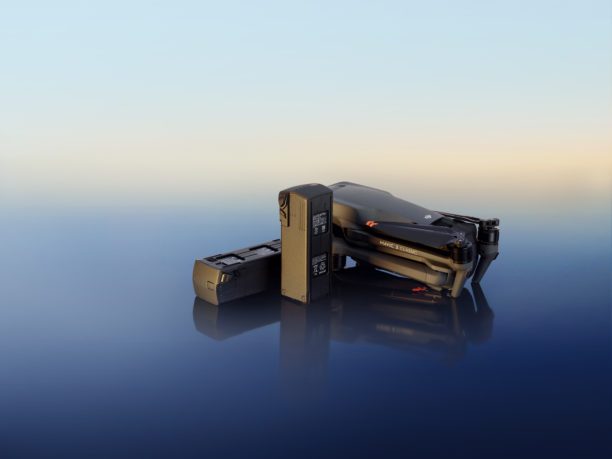U.S. Lawmakers Urge Commerce Department to Probe China-Tied Tech in Drone Sector
A consortium of U.S. congressional leaders has formally urged the U.S. Department of Commerce to investigate technology products linked to China across critical industries, with a particular mention of unmanned systems and the drone sector. In a letter dated October 30, 2025, the Chairs of four major House committees called on the Office of Information and Communications Technology and Services (OICTS) to assess and restrict products from foreign adversaries that may introduce national‐security vulnerabilities into U.S. supply chains.
The letter was signed by John Moolenaar (R-MI), Chairman of the House Select Committee on the Chinese Communist Party; Brian Mast (R-FL), Chairman of the House Committee on Foreign Affairs; Rick Crawford (R-AR), Chairman of the House Permanent Select Committee on Intelligence; and Andrew Garbarino (R-NY), Chairman of the House Committee on Homeland Security. It was also signed by Bill Huizenga (R-MI). The legislators highlight that OICTS already has broad authority and urge it to extend that authority to additional sectors beyond its current scope.
The Drone Industry Context
The inclusion of unmanned systems—including aerial, maritime and land drones—for both commercial and government use in the letter’s appendix reinforces a broader agenda to counter what the lawmakers describe as excessive reliance on Chinese‐origin platforms. The letter explicitly names the drone sector as one of the industries requiring “immediate action” and cites DJI.
This move marks the latest in a series of regulatory and policy actions aimed at limiting the influence and market dominance of DJI in the United States. U.S. policy has been steadily tightening around drones from foreign adversary countries.
The U.S. has already taken steps such as investigations under Section 232 and restrictions on drones suggested for inclusion on the Federal Communications Commission (FCC) Entity List, effectively barring certain Chinese-made drones from using U.S. spectrum and entering the market. Government agencies have already restricted the use of DJI platforms in many public sector roles, citing data security and supply‐chain concerns.
Why This Latest Move Matters
The lawmakers emphasise that American national security depends increasingly on which entities control the data, software and digital systems powering the country’s infrastructure. Their letter warns that a drone or other connected device could serve as a conduit for foreign adversary control, potentially bypassing geographic borders via firmware updates or remote access.
For drone manufacturers, service providers and end‐users in the U.S., this means the notion of a “trusted” drone platform is moving to the forefront. Firms that can demonstrate secure supply chains, domestic manufacturing or audited firmware may stand to benefit in an environment where scrutiny of Chinese drone technology investigation is intensifying. Conversely, commercially-oriented operators relying on foreign‐sourced components or firmware update models tied to foreign entities may face elevated compliance risk.
Implications and What to Watch
The letter requests that the Commerce Department provide a briefing by November 30, 2025, outlining its evaluation plans and anticipated guidance. For the drone industry this could lead to:
-
Procurement policies favouring U.S.-based or “trusted vendor” providers in government and infrastructure use‐cases.
-
Mandated transparency of component origin, firmware update paths and supply‐chain traceability.
-
Potential bans or restrictions on certain platforms or modules that the Department determines to pose heightened risk.
Given the industry’s direction—toward beyond-visual-line‐of‐sight operations, integration into infrastructure inspections and delivery networks—the timing of these changes is significant. The concept that a drone is “just a piece of equipment” is increasingly outdated; it is now part of a broader digital and cyber-physical network. In this context the focus on Chinese drone technology investigation takes on added urgency.
More Scrutiny – More Regulation
The recent letter by U.S. lawmakers underscores a strategic pivot in how the drone sector is viewed—from purely operational tools to critical components of national infrastructure and supply chains. With the drone industry entering what could be termed an “internet moment,” where connectivity, data and automation converge, the scrutiny on foreign‐sourced platforms is likely to deepen.
Drone industry stakeholders should prepare for a landscape where supply‐chain security, firmware integrity and vendor trustworthiness become key differentiators. For domestic manufacturers, this could be a tipping point in gaining market ground. For operators and service companies, the message is clear: the era of unrestricted reliance on certain Chinese platforms may be drawing to a close.
The broader goal must be to ensure that U.S. drone systems are not only innovative, affordable and capable but also secure and aligned with national-security priorities.
Read more:


Miriam McNabb is the Editor-in-Chief of DRONELIFE and CEO of JobForDrones, a professional drone services marketplace, and a fascinated observer of the emerging drone industry and the regulatory environment for drones. Miriam has penned over 3,000 articles focused on the commercial drone space and is an international speaker and recognized figure in the industry. Miriam has a degree from the University of Chicago and over 20 years of experience in high tech sales and marketing for new technologies.
For drone industry consulting or writing, Email Miriam.
TWITTER:@spaldingbarker
Subscribe to DroneLife here.


